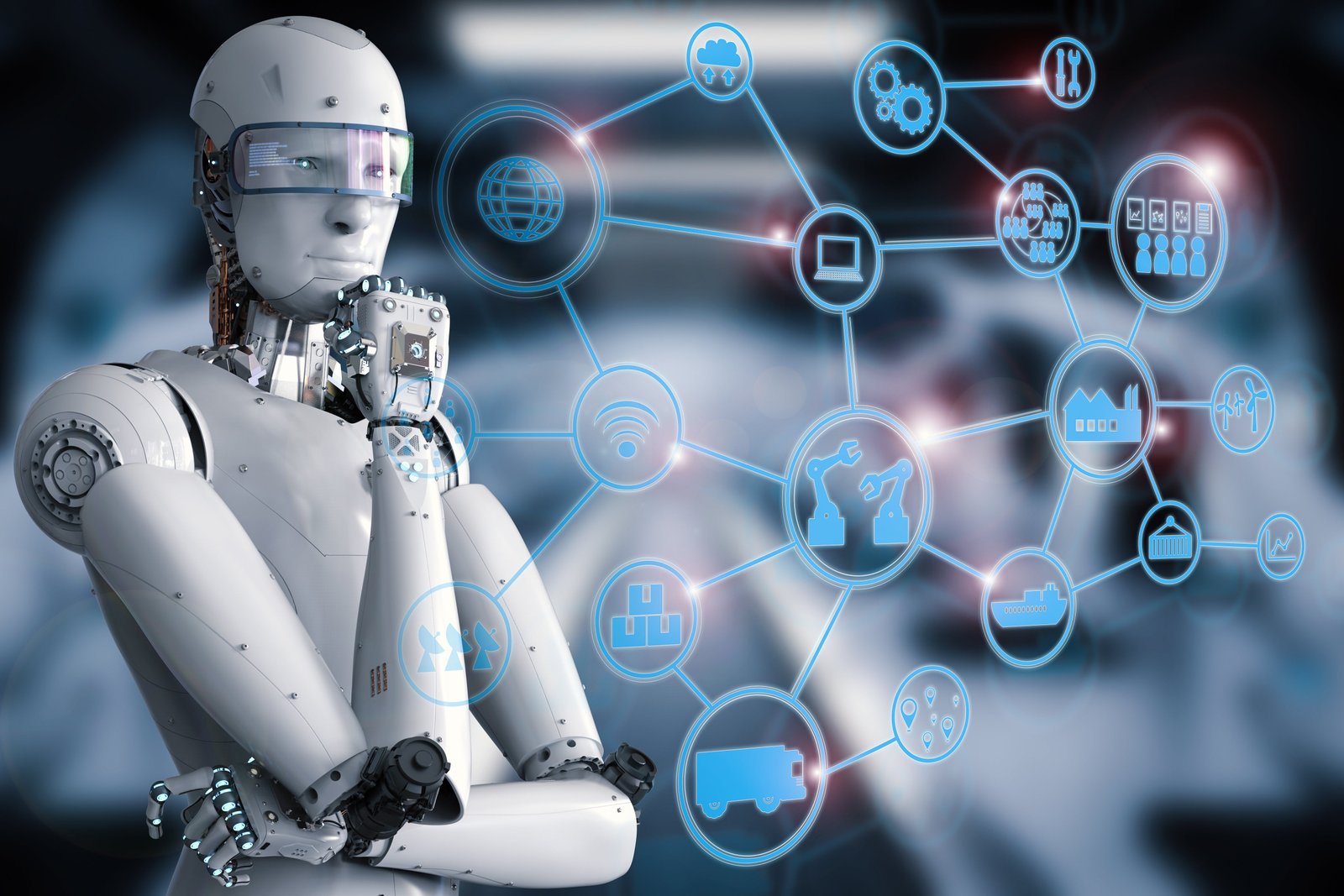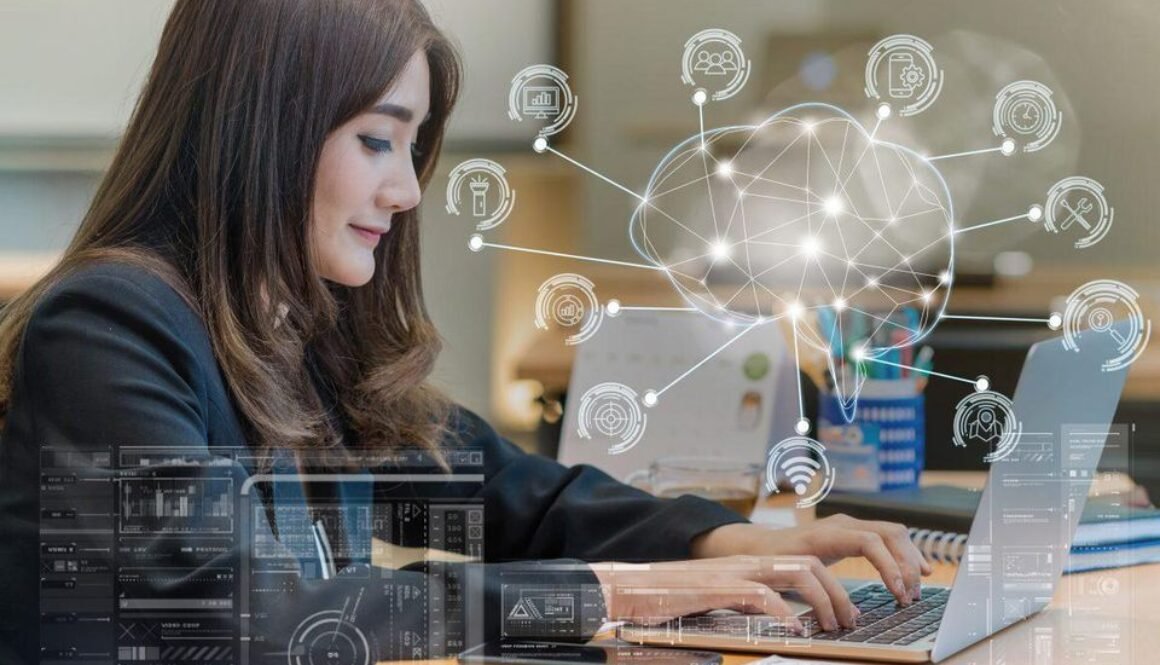AI in Education: Transforming the Learning Experience

Introduction
Artificial Intelligence (AI) has been making significant strides in revolutionizing various industries, and education is no exception. The integration of AI in education has brought about a transformation in the way students learn and educators teach. This article delves into the impact of AI on the learning experience and how it is reshaping the landscape of education.
AI-Powered Personalized Learning
One of the most notable contributions of AI in education is its ability to facilitate personalized learning experiences. Through sophisticated algorithms, AI can analyze individual learning patterns, preferences, and strengths, allowing for tailored educational content and pacing. This personalized approach not only enhances student engagement but also fosters a deeper understanding of the material.
Intelligent Tutoring Systems
AI has paved the way for the development of intelligent tutoring systems that provide real-time feedback and guidance to students. These systems leverage machine learning to adapt to the student’s learning style, offering customized support and additional resources when needed. By simulating one-on-one interaction, these AI-powered tutors help students grasp complex concepts more effectively.
Enhanced Administrative Efficiency
Beyond the classroom, AI has streamlined administrative tasks within educational institutions. From automating grading processes to optimizing resource allocation, AI technologies have alleviated the burden on educators, allowing them to focus more on teaching and mentoring students. Additionally, predictive analytics powered by AI assists in identifying at-risk students, enabling timely intervention and support.

Conclusion
The integration of AI in education has ushered in a new era of personalized learning, intelligent tutoring, and administrative efficiency. As AI continues to evolve, its potential to transform the learning experience is boundless. However, it is crucial to ensure ethical and responsible use of AI in education, maintaining a balance between technological advancement and human-centric teaching. Embracing AI as a complement to traditional educational methods holds the promise of creating a more inclusive, engaging, and effective learning environment for students worldwide.

AI in Education: Transforming the Learning Experience
Artificial Intelligence(AI) has brought revolutionary changes to diverse industries, and education is no exception. The integration of AI in education has immense potential to transform the learning experience, making it more engaging, personalized, and effective. Here’s a detailed breakdown of how AI is revolutionizing the field of education.
1. Personalized Learning Experience:
AI-powered adaptive learning platforms provide customized education tailored to each student’s unique needs, learning pace, and preferences. These platforms track students’ progress, identify knowledge gaps, and deliver content that is specifically relevant to their learning needs. This personalized approach helps students grasp concepts more effectively, boosts confidence, and enhances overall academic performance.
2. Virtual Tutors and Chatbots:
AI-driven virtual tutors and chatbots offer real-time assistance and guidance to students. They interact with students in natural language, answer questions, provide explanations, and offer feedback. These virtual assistants are accessible 24/7, providing students with immediate support, answering questions, and addressing concerns.
3. Intelligent Content Recommendation:
AI algorithms analyze students’ learning patterns, interests, and strengths to recommend personalized content, resources, and courses. This intelligent content recommendation system helps students discover new learning opportunities that align with their individual goals and areas of interest, fostering a deeper engagement with the learning material.
4. Automated Assessments and Feedback:
AI-powered assessment tools provide real-time feedback to students, allowing them to monitor their performance and address areas that need improvement. These tools can grade assignments, provide detailed feedback, and offer suggestions for further learning. This timely feedback cycle helps students identify their strengths and weaknesses, promoting self-paced learning and improvement.
5. Data-driven Insights for Educators:
AI analytics provide educators with valuable insights into students’ learning progress, engagement levels, and areas where they may require additional support. Educators can leverage this data to adjust teaching strategies, identify students who need extra attention, and personalize instruction to meet the diverse needs of their students.
6. Gamification and Interactive Learning:
AI-powered educational games and interactive simulations make learning more engaging and enjoyable. These gamified elements introduce elements of competition, rewards, and challenges to capture students’ attention and motivate them to actively participate in the learning process. By transforming learning into a game-like experience, AI helps students retain information more effectively.
7. Language Learning and Translation:
AI-powered language learning platforms offer personalized language instruction and real-time translation assistance. These platforms use AI algorithms to adapt the curriculum based on a student’s proficiency level and provide interactive exercises, quizzes, and games to reinforce learning. Furthermore, AI-enabled translation tools help break language barriers, allowing students to access educational content and materials in their preferred language.
Challenges and Future Outlook:
Despite the transformative potential of AI in education, challenges remain. Concerns about data privacy, ethical considerations, and the potential for job displacement among educators need to be addressed. Nonetheless, as AI continues to advance, we can anticipate further innovations that will enhance the learning experience and democratize access to quality education. Moreover, AI-driven technologies hold the promise of lifelong learning by providing personalized learning pathways that adapt to changing skills and knowledge requirements in a rapidly evolving world.# AI in Education: Transforming the Learning Experience
Executive Summary
AI has emerged as a transformative force, revolutionizing various facets of our world, including the education sector. This article presents a comprehensive exploration of AI’s impact on education, highlighting its potential to reshape learning methodologies, enhance adaptive learning, personalize educational content, and foster inclusivity in the educational sphere. As we delve into the world of AI-driven education, we shall unearth the intricate ways in which this technology is reshaping the future of learning.
Introduction
The advent of AI has propelled forth a new era of innovation in the realm of education, unraveling an unprecedented array of opportunities to revolutionize the way we learn and impart knowledge. Delving into the depths of this transformative technology, this article aims to unravel the intricacies of AI’s integration into the educational landscape, shedding light on its numerous benefits and real-world applications. Strap yourself in for a journey into the frontiers of AI-powered learning, where personalized experiences, enhanced engagement, and seamless knowledge transfer await.
AI-Driven Learning Methodologies
AI has revolutionized the way we approach the learning process. By dynamically tailoring educational content and assessments to the unique needs and learning styles of each student, AI-powered platforms empower educators to deliver highly personalized and engaging learning experiences.
- Interactive Learning Environments: AI creates immersive and interactive learning environments, facilitating deeper engagement with educational content. These environments leverage virtual reality (VR) and augmented reality (AR) technologies to transport learners into simulated worlds, where they can conduct scientific experiments, explore historical events, or navigate the complexities of mathematical equations.
- Adaptive Learning Algorithms: Built on vast troves of data, AI algorithms analyze individual learning patterns, strengths, and weaknesses, customizing the curriculum and pacing of lessons to optimize knowledge retention. This adaptive approach ensures learners are constantly challenged but not overwhelmed, promoting self-paced learning and fostering a sense of achievement.
- Intelligent Tutoring Systems: AI-driven tutoring systems provide real-time feedback and guidance to learners, acting as virtual tutors. These systems can respond to students’ queries, provide explanations, and offer hints or suggestions, enhancing the overall learning experience and fostering a continuous cycle of improvement.
Augmented Educational Content
AI has enabled the creation of augmented educational content that captivates learners’ attention and promotes deeper comprehension. Textbooks and online resources are enriched with interactive elements, multimedia content, and engaging simulations, making learning an immersive and enjoyable experience.
- Interactive Textbooks: AI enhances textbooks with interactive tools, videos, and animations that bring concepts to life. This dynamic content fosters engagement, encouraging students to explore and learn at their own pace, fostering a deeper understanding of complex subjects.
- Virtual Field Trips: With AI, students can embark on virtual field trips to historical sites, museums, or natural wonders. These immersive experiences allow learners to interact with 3D models, videos, and interactive elements, making history and science come alive.
- Educational Simulations: AI-powered simulations provide learners with hands-on experiences that mirror real-world scenarios. These simulations allow students to test theories, explore possibilities, and gain practical skills in fields such as science, engineering, and business.
Personalized Learning Pathways
AI enables the creation of personalized learning pathways that cater to the unique needs, interests, and aspirations of each student. By analyzing student data, AI-driven systems can identify learning gaps, recommend tailored courses and resources, and suggest extracurricular activities that align with the student’s long-term goals.
- Individualized Learning Plans: AI assists educators in developing individualized learning plans for each student, considering their learning preferences, strengths, and weaknesses. These plans ensure that each student receives the support and resources they need to thrive academically.
- Career Guidance: AI analyzes a student’s academic performance, interests, and personality traits to provide personalized career recommendations. These insights help students make informed decisions about their future and embark on fulfilling career paths.
- Real-Time Assessment and Feedback: AI-powered assessment tools provide real-time feedback to both students and educators, pinpointing areas of strength and weakness. This continuous feedback loop enables learners to identify areas for improvement and adjust their study strategies accordingly.
Enhancing Inclusivity in Education
AI is a powerful tool for promoting inclusivity in education, ensuring that all learners have equal opportunities to succeed. AI-driven systems can provide assistive technologies, language translation, and real-time accommodations for students with disabilities, creating a more inclusive learning environment.
- Assistive Technologies: AI-powered assistive technologies, such as speech-to-text software, screen readers, and sign language interpreters, enable students with disabilities to access and engage with educational content seamlessly.
- Language Translation: AI-driven language translation tools break down language barriers, allowing learners to access educational materials in their native language. This promotes equal participation and fosters a more inclusive learning environment.
- Personalized Accommodations: AI analyzes student data to identify learning challenges and recommend personalized accommodations, such as extended testing time, quiet study spaces, or alternative assessment formats.
Conclusion
The integration of AI into the education system is an undeniable game-changer, revolutionizing the way we learn and teach. AI-driven learning methodologies, augmented educational content, personalized learning pathways, and enhanced inclusivity are just a few of the ways in which this transformative technology is reshaping the future of education. As the boundaries of AI continue to expand, we can expect to witness even more innovative and groundbreaking applications of this technology in the educational realm, propelling us towards a future where learning is personalized, engaging, and accessible to all.
